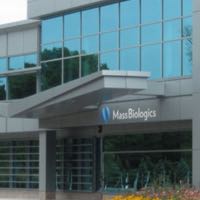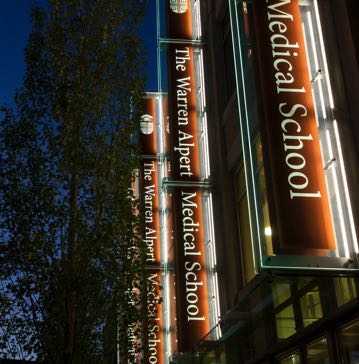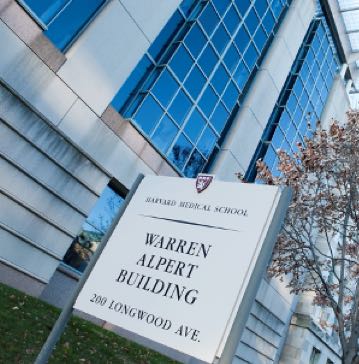2024 - University of Chicago
MesoRNA in Alzheimer’s Disease and Amyotrophic lateral sclerosis Read more

MesoRNA in Alzheimer’s Disease and Amyotrophic lateral sclerosis Read more
SMART Plus Pathways: School Health Model for Academics Reaching All Transforming Lives Plus a Health Professionals Pathways Program for Rhode Island Read more
National Multiple Sclerosis (MS) Brain Bank Project Read more
Leveraging population-scale stem cell models of Alzheimer’s disease to advance precision Read more
Support for a Hospice & Palliative Medicine Fellow at HopeHealth Read more
The Warren Alpert Scholar Program in Computational Biology and Artificial Intelligence Read more
Advancing Precision Psychiatry Through Integration of Genetic and Clinical Data Read more
Utah Program for Pediatric Personalized Medicine (UPEPM) Read more
Enhancing personal and professional growth for Nurses, the pathway to increased recruitment and retention of a fulfilled Nursing Team Read more
Rhode Island Facilitating Investment in Nursing Education (RIFINE) Project Read more
Warren Alpert UCLA Computational Biology/AI (CBAI) Scholar Training and Retention Program Read more
The Warren Alpert Foundation Clinician-Scientist Fellowship in Behavioral Neurology & Neuropsychiatry at the Massachusetts General Hospital Read more
LABS (Lustgarten Advancing Breakthrough Science) Program Read more
Prospective clinical pilot study comparing novel approaches to equitable pulse oximetry Read more
Assessing the Lasting Impact of the Pandemic on US Nursing Homes Read more
Cell Discovery Network: Pediatric Cell Atlas Read more
Determine the bases and sugars of human RNA: A Periodic Table of RNA Read more
Career Ladder Education Program for Genetic Counseling (CLEP-GC) Read more
Massachusetts Consortium on Pathogen Readiness Read more
Early Detection and Treatment Fund Read more
Toward Sequencing and Mapping RNA Modifications Read more
The Genomic Medicine for Mental Health Advancement (GeMMA) Read more
Advancing Precision Medicine through Computational and Digital Pathology Read more
Crossroads Rhode Island Health & Housing Vision Read more
Development of a Humanistic, Patient Centered, Early-Phase Cancer Research Center at an Academic Community Hospital: Center for Innovative Cancer Research Therapies at The Miriam Hospital Read more
A personalized treatment strategy for Parkinson's disease Read more
mRNA vaccines for falciparum malaria Read more
SMART Plus Pipeline: School Health Model for Academics Reaching All Transforming Lives Plus a Health Professionals Pipeline Program for Rhode Island Read more
Building upon the Undiagnosed Diseases Network to Increase Population Representation and Acquire Therapeutic Insights Read more
The Neuroinflammatory Response in the 4th Dimension: Creating a Neuronal Organoid-on-a-Chip Platform to Assess the Impact of Circadian Dysregulation on the Immune Response to Alzheimer’s Disease Read more
Alzheimer's Disease Biomarkers and Risk Disclosure Read more
ONC212 as novel therapy for pancreatic cancer Read more
Targeted Intensive Case Management of Veterans at Risk for Suicide Post Inpatient Hospitalization Read more

GMP-Facility for the Production of Antisense Oligonucleotides for Orphan Diseases Read more
Investigation of the Role of Epigenetics in Adult and Pediatric Malignant Glioma Read more
Evaluating Medicare's New Skilled Nursing Facility Payment System Read more

The Warren Alpert Foundation Center for Digital and Computational Pathology Read more
Structure-Based Drug Discovery Targeting Substrate of y-secretase in Alzheimer's disease Read more
Tuberculosis: Learning the Impact of Nutrition Read more
Bryant University’s School of Health Services Read more
The Warren Alpert Foundation Dean's Leadership Fund - The Warren Alpert Foundation Discovery Fund for Immunologic Research - The Warren Alpert Foundation Professorship in Health Care Policy Read more

The naming of Brown University's medical school in honor of businessman, entrepreneur, philanthropist and foundation founder, Warren Alpert. Read more

Mount Sinai established The Warren Alpert Pavilion Read more

Donation for the Harvard Medical School - The Warren Alpert Research Building- a new 5-story research Building. Read more